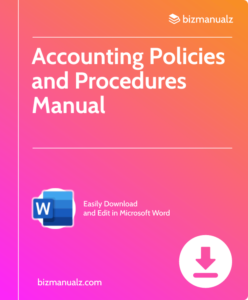What Does a CPA Do?

The Certified Public Accountant (CPA) is essential in the financial realm. CPAs handle various accounting duties, such as auditing, tax filing, and financial planning. They ensure companies stick to accounting laws and provide precise financial information. What does a CPA do?
Preparing CPA
CPAs are important for upholding the reliability of financial statements. They check records, activities, and processes to spot any discrepancies or mistakes. By doing this, they help businesses be open and gain trust from stakeholders.
Moreover, CPAs are knowledgeable in tax rules. They assist people and companies in filing taxes properly while getting the most deductions and reducing liabilities. Their expertise helps customers comprehend complex tax codes, ensuring legality and improving financial results.
Additionally, CPAs assist businesses with in-depth financial analysis. They assess organizational performance by looking at income statements, balance sheets, and cash flow statements. This detailed evaluation allows companies to make wise choices on investments, expansions, or cost-cutting moves.
Luca Pacioli is known as the “Father of Accounting.” In his book published in 1494 called “Summa de Arithmetica,” Pacioli introduced the double-entry bookkeeping system- a revolutionary concept still employed by CPAs around the world. His contribution laid the groundwork for modern accounting practices and set the basis for the CPA profession.
What is a CPA?
A CPA is a financial expert with expertise in accounting and taxation. They offer services like auditing, consulting, tax planning, and financial analysis. CPAs make sure financial records are accurate and standards are met.
A CPA must pass the Uniform CPA Examination from the AICPA to become certified. This tests their knowledge of financial accounting, auditing, taxation, ethics, and business law. They also have strong analytical skills and interpret complex financial data.
Sarah is a small business owner who had trouble managing her finances. She hired a CPA for help. The CPA assessed her financial records, identified problems, and came up with strategies to save money. She also advised Sarah on tax planning and made sure regulations were followed. With the CPA’s help, Sarah’s business flourished and stayed compliant.
Responsibilities of a CPA
Are you looking for expert help with your accounting needs? Look no further – Certified Public Accountants (CPAs) are here! Let’s explore the responsibilities they possess that make them such a sought-after professional.
- Financial Records: CPAs maintain up-to-date financial records for businesses and people. They ensure all transactions are recorded and organized accurately.
- Audits: CPAs often conduct audits to check compliance with financial regulations. They review documents and financial statements to detect any discrepancies or irregularities.
- Tax Services: CPAs help clients with tax planning, preparation, and filing to meet laws and reduce tax liabilities.
- Financial Advice: They provide guidance on budgeting, investments, and other financial matters to both businesses and individuals.
- Legal Compliance: CPAs establish control systems to make sure businesses abide by related finance and accounting laws.
With their expertise, CPAs offer invaluable services and contribute to the success of businesses and people. Don’t wait – take charge now and get in touch with a CPA to secure your financial future!
Education and certification requirements for becoming a CPA
Achieving CPA status requires dedication and commitment. Here’s what you need to know:
- Education: Obtaining a bachelor’s degree in accounting or a related field is usually necessary.
- Core Courses: You must take courses like financial accounting, auditing, taxation, and business law.
- CPA Exam: Passing the Uniform CPA Exam is essential.
- Experience Requirement: Experience under a licensed CPA is also important.
To be successful, stay up-to-date on developments in accounting. Learn at conferences, workshops, and seminars.
Here are some tips:
- Plan Ahead: Research requirements and make a study plan.
- Seek Guidance: Get help from experienced CPAs.
- Utilize Resources: Use review courses, textbooks, online resources, and practice exams.
- Stay Engaged: Join organizations and attend networking events.
By following these steps, you can meet the education and certification requirements for becoming a CPA. Dedication and perseverance are the keys to success in accounting.
Examples of CPA work
CPAs carry out various tasks. Such as:
- Preparing financial statements. This includes gathering data, reconciling accounts and ensuring the accounts follow standards.
- Tax planning and compliance. Helping individuals and businesses lower their tax liabilities while still being compliant with tax laws. Keeping up with changes in regulations and advising clients on deductions, credits and strategies to lower taxes.
- Auditing. Examining records, transactions and internal control to verify financial statements. Crucial for transparency and trust between stakeholders.
- Consultancy services. Offering expert advice on financial matters. Business valuations, mergers and acquisitions, risk assessment, implementation of internal controls, and forensic accounting.
CPAs also analyze financial data to help drive business growth and inform investment decisions.
Pro Tip: CPAs have to communicate with clients and colleagues. They need to be able to explain financial concepts clearly, precisely and concisely for effective collaboration.
What Does a CPA Do
A CPA is essential in the world of accounting. They use their skill and knowledge to guarantee accurate financial records and give significant understanding to organizations. Going beyond numbers, they help organizations make informed decisions and follow tax laws.
Their tasks involve preparing financial statements, analyzing data and giving propositions to improve financial performance. They assist with tax planning and guide clients through complex regulations. CPAs also do audits and reviews to guarantee transparency and responsibility. Moreover, they offer advisory services to help businesses plan for growth and reduce risks.
As technology changes, CPAs must stay up to date with new tools and digital platforms. This lets them manage operations more efficiently, reduce mistakes and provide real-time insights to customers.
Let’s explore a noteworthy true history that shows the effect of CPAs. In the late 1980s, a multinational organization was accused of fraudulent accounting practices that had deceived investors for a long time. The company’s stock crashed, making huge losses for shareholders.
It was only through the hard work of a team of forensic CPAs that the gravity of the wrongdoings was exposed. Their study showed manipulated financial statements planned to artificially swell profits. This important case led to more stringent regulations in the accounting industry and showed the importance of integrity in financial reporting.
Frequently Asked Questions
1. What does a CPA do?
A CPA, or Certified Public Accountant, is a professional who provides accounting, financial, and tax-related services to individuals, businesses, and organizations. They ensure compliance with financial regulations and assist with strategic financial planning.
2. What services does a CPA offer?
A CPA offers a wide range of services, including financial statement preparation, tax planning and preparation, auditing, consulting, and financial management. They also provide guidance on financial decisions, such as investment strategies and business expansion.
3. How does a CPA differ from an accountant?
A CPA is a designation obtained by accountants who have met specific educational and experience requirements, and have passed the Uniform CPA Examination. While all CPAs are accountants, not all accountants are CPAs. The CPA designation signifies a higher level of expertise and specialization in accounting and related fields.
4. Why is it important to hire a CPA?
Hiring a CPA is important as they possess the necessary skills and knowledge to handle complex financial matters. They can provide accurate and timely financial reports, ensure compliance with tax laws, maximize deductions and minimize liabilities, and offer valuable financial advice to help individuals and businesses make informed decisions.
5. How much does it cost to hire a CPA?
The cost of hiring a CPA may vary depending on factors such as the complexity of the services required, the size of the organization, and the location. Generally, CPAs charge an hourly rate or fixed fee for their services. It is advisable to discuss fees and services with a CPA before engaging their services.
6. Can a CPA help with personal finances?
Yes, a CPA can assist with personal finances. They can help with tax planning and preparation, budgeting, retirement planning, investment strategies, and estate planning. a CPA can provide valuable insights and guidance to help individuals manage their finances effectively and achieve their financial goals.
















Leave a Reply